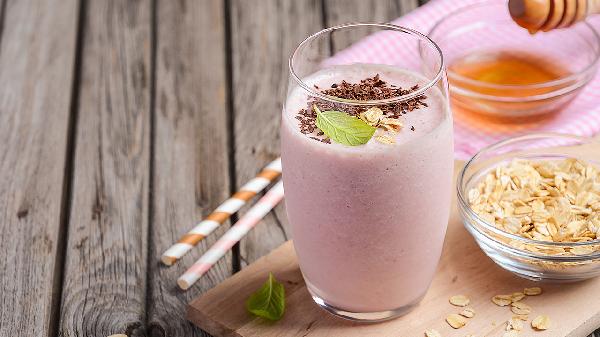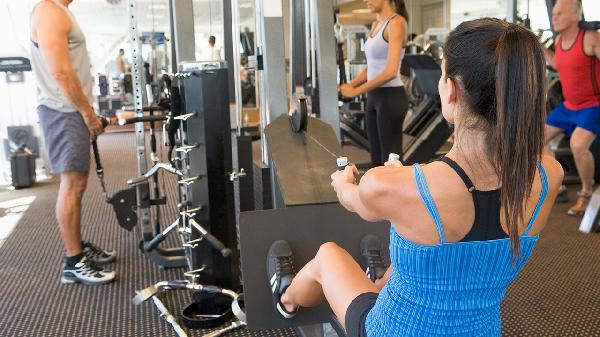Daily cardio isn't just about shedding pounds or training for a marathon—it's a full-body revolution that rewires your system in ways you'd never guess. From your brain chemistry to your toenails, consistent aerobic exercise triggers a cascade of unexpected transformations that'll make you view that daily jog or cycling session in a whole new light.

That post-workout clarity isn't just in your head—literally. Cardio stimulates neurogenesis, creating new brain cells in the hippocampus (your memory HQ) while flooding your system with BDNF (brain-derived neurotrophic factor), essentially Miracle-Gro for your gray matter. Regular runners report better problem-solving skills within weeks, and studies show aerobic exercise can delay cognitive decline by up to 10 years. The best part? You don't need to go full Olympian—even moderate daily cardio strengthens those neural pathways.
Think of your circulatory system as Amazon Prime for your organs—cardio turns it into same-day delivery. Within a month of consistent training, your blood volume increases by 20%, packed with fresh red blood cells carrying more oxygen. Your capillaries multiply like crazy, creating new supply routes to muscles. This vascular remodeling explains why seasoned exercisers recover faster and why that stair climb eventually stops leaving you winded. Bonus: your blood sugar regulation gets so efficient it could put a pancreas to shame.
Here's the plot twist—daily cardio doesn't just burn fat during workouts. It triggers mitochondrial biogenesis, creating fat-incinerating powerhouses in your cells that work around the clock. Your body becomes a hybrid vehicle, switching between fuel sources more efficiently. The real magic happens with visceral fat—that dangerous belly stuff—which cardio melts away even when the scale barely budges. Pro tip: mix steady-state with occasional high-intensity bursts to keep your metabolism guessing.
Contrary to that "running ruins knees" myth, proper daily cardio actually strengthens joints by increasing synovial fluid production—nature's WD-40 for your hinges. The compression forces stimulate cartilage repair, while stronger muscles take pressure off joints. Arthritis patients often experience reduced pain after starting low-impact cardio programs. Just remember: progression is key. Jumping from couch potato to 5K every day is a recipe for trouble—build up gradually like your joints are precious vintage equipment (because they are).
Cardio acts like a master conductor for your endocrine system. Cortisol (the stress hormone) gets regulated instead of spiking chronically. Endorphins flow like a natural antidepressant, while growth hormone production gets a boost for better muscle maintenance. Women often notice reduced PMS symptoms, and men experience more stable testosterone levels. The catch? Overtraining can backfire—keep sessions moderate and take rest days to let your hormones recalibrate.
That post-cardio exhaustion leads to the deepest, most restorative sleep you've ever experienced. Regular aerobic exercise increases time spent in slow-wave sleep (the physically restorative phase) and REM sleep (the mental reset phase). Your body temperature regulation improves, helping you fall asleep faster. Insomniacs who start daily cardio often reduce sleep onset time by half. Just time it right—finishing intense sessions at least 3 hours before bedtime prevents overstimulation.
Moderate daily cardio causes immune cells to circulate more rapidly, acting like neighborhood patrols catching viruses before they settle in. Regular exercisers get 40-50% fewer sick days, with illnesses lasting half as long when they do strike. The key is moderation—marathon-level training temporarily weakens immunity, but 30-60 minutes of daily cardio hits the sweet spot. Your lymphatic system (which lacks a pump) relies on muscle movement from exercise to flush out toxins—think of each step as squeezing the sponge of your body.
Your intestines host a universe of bacteria that cardio directly influences. Aerobic exercise increases microbial diversity (a marker of gut health) and boosts strains that reduce inflammation. Regular cardio enthusiasts show higher levels of butyrate-producing bacteria—linked to reduced colon cancer risk and better nutrient absorption. This gut-brain axis improvement might explain why many report reduced anxiety after adopting daily cardio. Pro tip: pair your routine with probiotic foods for maximum microbiome benefits.
Regular cardio trains your nervous system to handle discomfort like a champ. The same endocannabinoid system activated by marijuana gets stimulated by sustained aerobic exercise (hence "runner's high"). Over time, your brain's pain thresholds adjust upward—studies show cyclists tolerate 20% more pain after just six weeks of training. This translates to everyday life, making you more resilient to headaches, back pain, and even dental procedures. Who knew sweating could be nature's anesthetic?
From your DNA to your mental health, daily cardio quietly overhauls nearly every system in your body in ways science is still discovering. The most surprising change? How quickly these benefits compound—many kick in within weeks, creating a positive feedback loop that makes exercise feel less like a chore and more like daily maintenance for your most valuable asset. Your future self will high-five you for sticking with it.
























